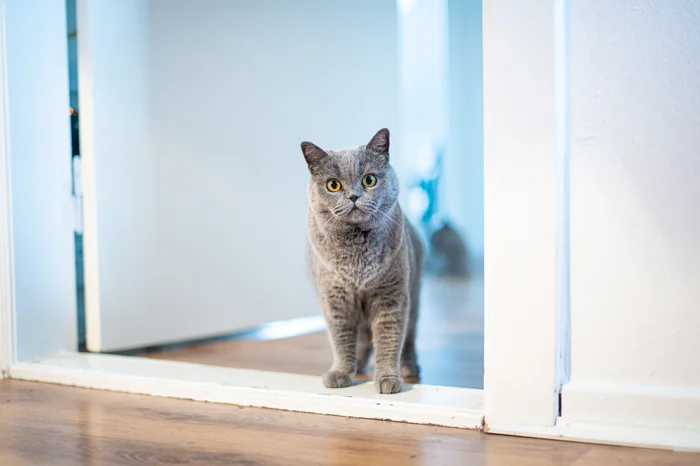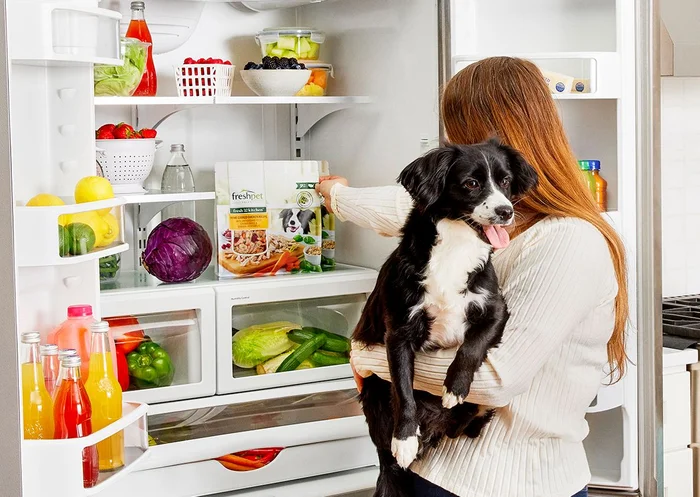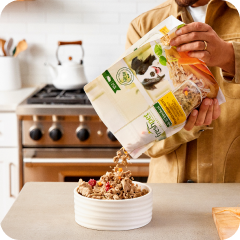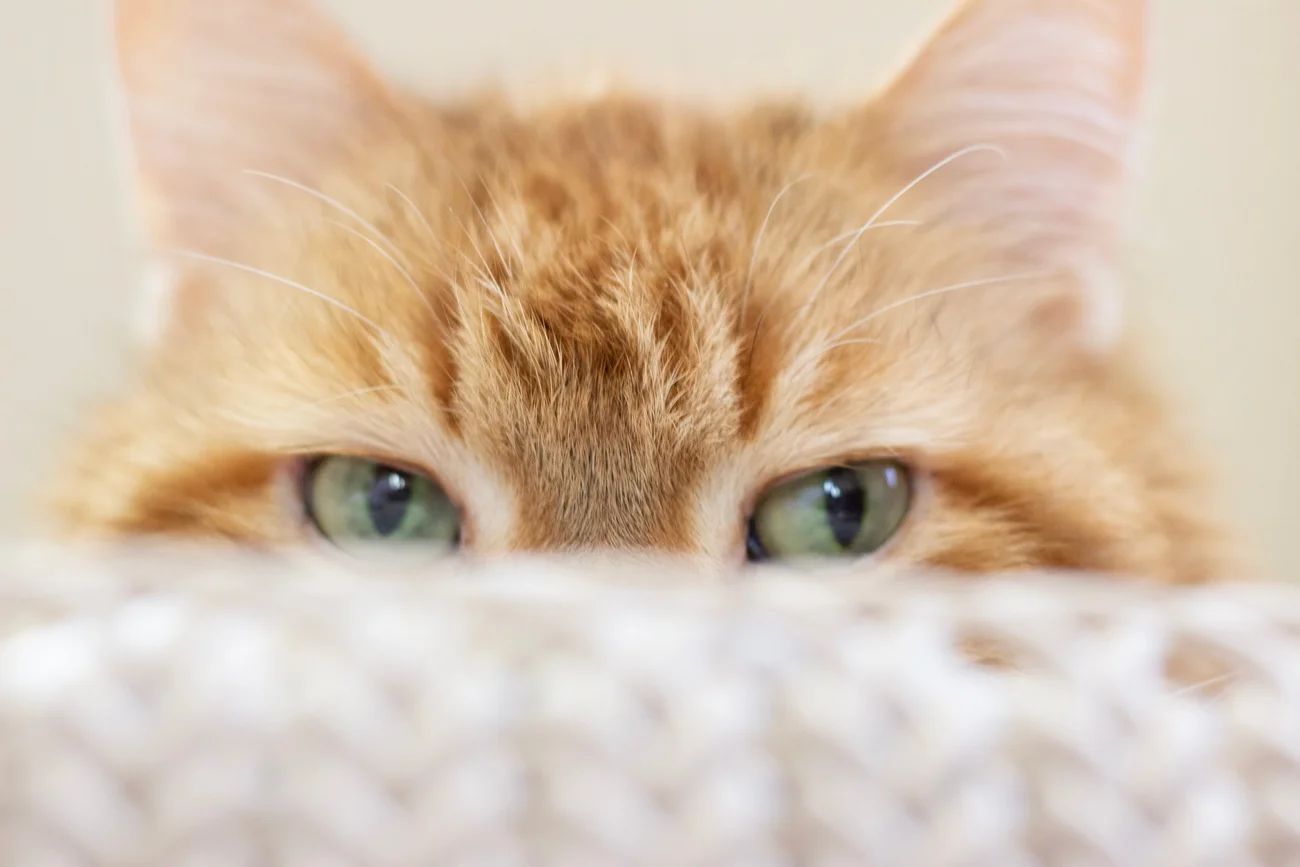popular searches

Why Is My Cat Throwing Up? How To Help Ease A Cat's Uneasy Stomach
written by Ellie Walker
If there’s one question all cat parents have asked themselves at some point, it would be “why does my cat throw up?”. Unfortunately, vomiting is a fairly regular occurrence for cats. The good news is that, usually, vomiting can often be treated and managed at home.
To help pet parents get the answers to their question of “why does my cat throw up”, let’s explore the different reasons why a cat may be throwing up and how you can deal with it.
Why does my cat throw up?
Throwing up may be a fairly common occurrence for cats, but pet parents understandably still want to understand why it happens. There are a few non-medical reasons why a cat could be vomiting, such as:
- Hairballs: These cylindrical wads of undigested hair are one of the main causes of vomiting in cats. When cats groom themselves, they end up swallowing a lot of loose hairs, which are indigestible. As it starts to build up in your cat’s stomach, it will need to be expelled by vomiting.
- Eating too quickly: Some cats, especially those that have lived on the street or have had to ‘fight’ for food with other animals, tend to eat too quickly. When a cat eats too fast, it causes their stomach to expand too rapidly. This triggers their brain to send a signal to their stomach to regurgitate the food because it’s too much to accommodate all at once.
- Not eating enough: On the other end of the spectrum, cats can vomit because they are not eating enough food – or not eating food often enough. A cat with an empty stomach may feel nauseous and vomit up stomach bile.
While these causes of vomiting usually aren’t a sign of serious illness, they can be unpleasant for both you and your cat. Fortunately, there are a number of things you can do to curb these types of vomiting, which we’ll discuss in more detail later.
When should I be concerned about my cat throwing up?
If your cat vomits occasionally this is usually nothing to be concerned about, however, if it is accompanied by any of the following symptoms it could be a sign of a more serious illness:
- Lethargy
- Weakness
- Decreased appetite
- Blood in the vomit
- Increased thirst
- Increased or decreased urination
- Diarrhea
If your cat starts displaying any of these symptoms, you should immediately schedule an appointment with your vet. Vomiting paired with any of the above symptoms could indicate poisoning, intestinal blockage, parasites, organ failure or other serious medical issues. The good news is that the sooner your cat gets treatment, the better their prognosis.
How can I stop my cat from throwing up?
You now have the answers to the “why does my cat throw up” question, but what exactly can you do about it? Depending on the underlying cause of your cat’s vomiting, there are a few things that you can try, such as:
- Feed them a high-quality diet: Sometimes the reason why your cat throws up is because of the ingredients in their food. Diets with low-quality ingredients are more likely to trigger food allergies in cats, which can cause vomiting. If you suspect your cat’s vomiting is caused by their diet, consider switching them to a diet that is made using fresh, whole ingredients – exactly like what is in your own food. Freshpet currently has three lines of recipes for cats available in a variety of different formats.
- Increase the hydration of their food: Adding some water to your cat’s existing food can bulk it out a bit and make them feel fuller for longer. This can be especially useful for cats that are vomiting due to an empty stomach. An additional benefit of this is that your cat will maintain good overall hydration levels, which is something felines struggle with in general.
- Switch to a fresh diet: Some cats are quite picky about their food and won’t tolerate water being added to it. If your cat falls into this category, you can increase their overall hydration by switching to a fresh diet. Fresh food has naturally higher hydration, as they contain a larger quantity of animal protein, which has high moisture levels and leaves them feeling more satiated.
- Feed smaller, more frequent meals: Unlike dogs, who do well on two meals a day, cats’ digestive system is designed to eat small, frequent meals throughout the day. While some pet parents tackle this by allowing their cats to ‘free feed’, this method doesn’t work for cats that overeat – especially when the overeating causes vomiting. Instead, try using a timer feeder to feed your cat several small meals throughout the day. Timer feeders, like the one by Casfuy, have several compartments so you can divide their total daily food intake into smaller portions, which should help reduce the frequency of bile vomits.
- Supplements to help with hairballs: If your cat’s vomiting is caused by hairballs, there are many over-the-counter supplements available to help bring your cat some relief. Which option you choose depends on your cat’s preference. Some prefer a paste, like the one by TOMLYN, while others are more likely to eat a small treat, such as the ones by PetHonesty. If the over-the-counter supplements aren’t cutting it, you can speak to your veterinarian about prescription options.
If your cat’s vomiting persists, even after you’ve made changes to their diet and feeding schedule, speak to your veterinarian. They will be able to help you get to the bottom of why your cat is throwing up!











